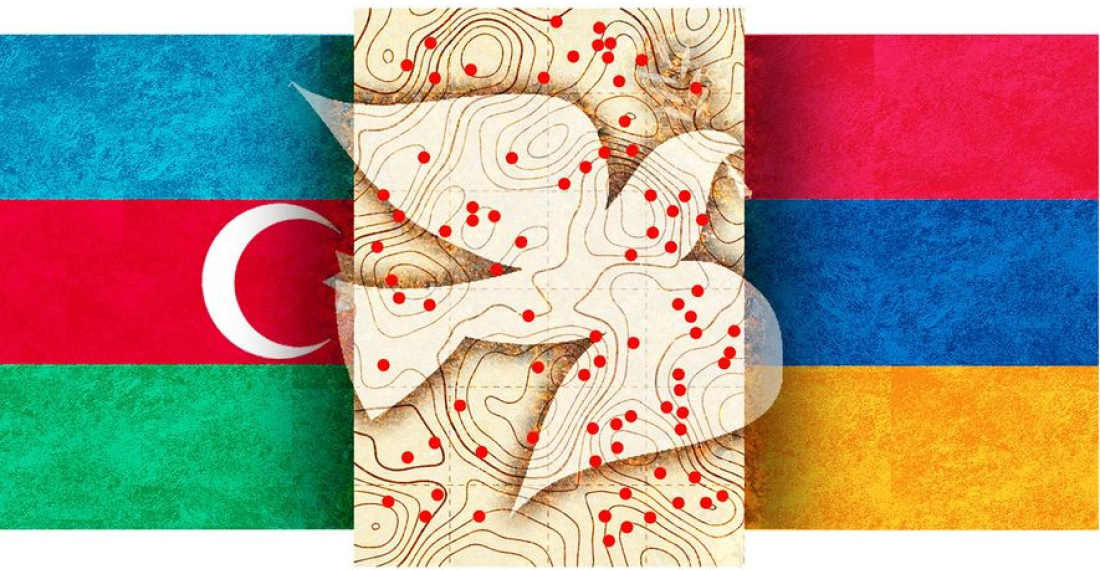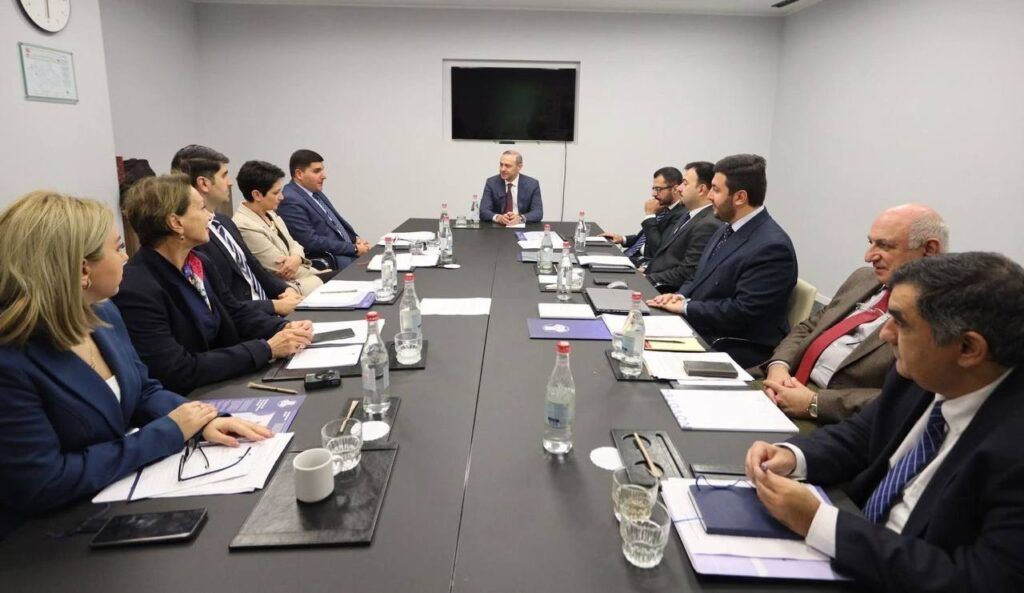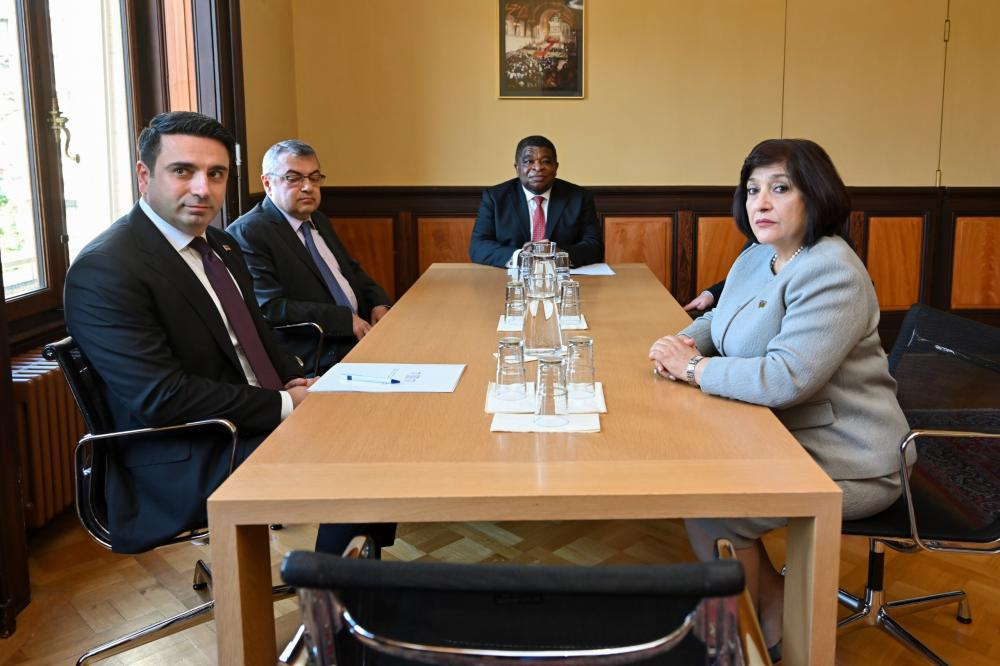Baku, Yerevan take tangible steps toward peaceful coexistence

For the first time in many years, an Azerbaijani plane landed in Yerevan. This event is a significant detail that could mark a regular pattern in the relations between the two countries soon. This time, all arrangements from the flight to Yerevan to the development of the program and press release were made solely by the two countries, reflecting a bilateral initiative. This is highly important for the peace process, as such independently organized meetings place additional responsibility on the parties and provide fresh momentum for peace efforts.
A new phase in the Azerbaijan-Armenia peace process is emerging, highlighted by bilateral initiatives in Yerevan aimed at fostering dialogue between societies, building trust, and advancing sustainable peace.

From October 21–22, 2025, a bilateral round table brought together representatives of civil society and expert communities from both countries. The Armenian delegation included Areg Kochinyan, Boris Navasardyan, Naira Sultanyan, Narek Minasyan, and Samvel Meliksetyan, while Farhad Mammadov, Rusif Huseynov, Ramil Iskandarli, Kamala Mammadova, and Dilara Afandiyeva represented the Azerbaijani side. The initiative, supported by official structures of both countries, reflected a joint commitment to advancing the agenda of the Joint Declaration signed on August 8, 2025, in Washington, D.C.
The discussions focused on key areas of concern, including humanitarian issues, economic and logistical opportunities arising from normalization, and concrete confidence-building measures. Participants emphasized the importance of involving broad social groups, civil society, the expert community, and the media in promoting dialogue. Meetings with Armen Grigoryan, Secretary of the Security Council of Armenia, reinforced the role of official oversight in ensuring that civil society initiatives complement the formal peace process. The round table concluded with a firm commitment to continue joint efforts to strengthen mutual understanding and lay the groundwork for a long-term, sustainable peace.
The round table marked the first meeting of civil society representatives in this format and underscores a shift toward a people-centered approach to reconciliation. For decades, Western institutions have dictated the framework of the peace process in the South Caucasus, often prioritizing their interests over local realities. Today, Azerbaijan and Armenia are actively pursuing confidence-building measures independently, demonstrating that the path to coexistence must be shaped by the societies directly involved.
This approach is particularly significant given the large generation of Azerbaijanis who grew up under the shadow of war. Establishing direct communication between citizens, fostering trust, and enabling collaboration on economic and social projects is essential to ensure that historical grievances do not dictate future relations. The recent implementation of the first charter flight between Baku and Yerevan also represents a tangible step toward connecting populations and facilitating practical exchanges.
The importance of societal engagement has also been emphasized at the parliamentary level. A recent meeting between the Speaker of the Azerbaijani Parliament, Sahiba Gafarova, and her Armenian counterpart, Alen Simonyan, highlighted the role of legislative cooperation in promoting rapprochement between societies and identifying concrete steps for peaceful coexistence. Their discussions underscored the need for structured engagement and long-term strategies to create lasting understanding between citizens of both nations.

Despite these positive developments, obstacles remain, as always. Revanchist tendencies within Armenia, exemplified by the Garabagh clan led by Kocharyan and Sargsyan, the Armenian oligarchy in Russia, the diaspora, and elements of the church, pose a persistent threat to regional stability. These actors continue to exploit historical narratives to maintain tension and resist meaningful reform. Purging such revisionist and confrontational ideas from Armenian society is essential if a lasting peace is to be achieved.
Ultimately, this narrative is not about Armenia’s future; it is about its own failure. A failure to lead, to adapt, and to understand that the age of occupation and isolation is over. The region is moving toward cooperation, trade, and connectivity. Armenia has the chance to be part of this progress, but only if it frees itself from the grip of men like Kocharyan, who mistake nostalgia for leadership and cynicism for wisdom. He also announced that his team intends to participate in the upcoming parliamentary elections, signaling that he plans to use every available lever of influence, including leaning on Russia, which is not surprising, since last week there were reports of him secretly visiting Moscow and holding meetings.
Recent domestic developments, such as the arrest of Vardan Ghukasyan, the elected mayor of Gyumri, illustrate how internal political dynamics in Armenia can complicate the broader normalization process. European institutions have largely remained silent on this issue, exposing a double standard that highlights the need for Azerbaijan and Armenia to manage confidence-building independently, free from external interference.
Practical steps toward normalization
Alongside dialogue initiatives, practical measures are being taken to support normalization. Economic opportunities, humanitarian cooperation, and transport links, including the new charter flights, provide concrete evidence of progress. These steps reflect a long-term vision for coexistence that goes beyond political statements, directly involving citizens in shaping the peace process.
The Yerevan round table and related initiatives are just the beginning of a comprehensive process. Both countries face the long-term task of shaping societies that prioritize peaceful coexistence and socio-economic development over revanchist ambitions. By fostering dialogue at both the governmental and civil society levels, Azerbaijan and Armenia are setting the stage for a future in which disputes are resolved through law, communication, and cooperation rather than conflict.
Naturally, some Armenian sources express offensive and negative opinions, while certain Azerbaijani platforms claim "it is impossible to agree." Such reactions are normal at this stage, as public awareness is still adjusting to the peace agenda. Nevertheless, decisions are being taken at the state level to promote the peace process. If genuine conditions have been created for stability and lasting peace at this pivotal moment, they should be fully exploited.
The success of this process will depend on sustained engagement, the removal of internal spoilers, and the ability of both societies to envision a shared, peaceful future. If Yerevan opts for cooperation, regional stability and prosperity can be achieved. Conversely, under revanchist pressures, a cycle of isolation and uncertainty may restart. Azerbaijan's move signals an open call for regional peace, and how Yerevan responds will depend on its political maturity.
Here we are to serve you with news right now. It does not cost much, but worth your attention.
Choose to support open, independent, quality journalism and subscribe on a monthly basis.
By subscribing to our online newspaper, you can have full digital access to all news, analysis, and much more.
You can also follow AzerNEWS on Twitter @AzerNewsAz or Facebook @AzerNewsNewspaper
Thank you!

